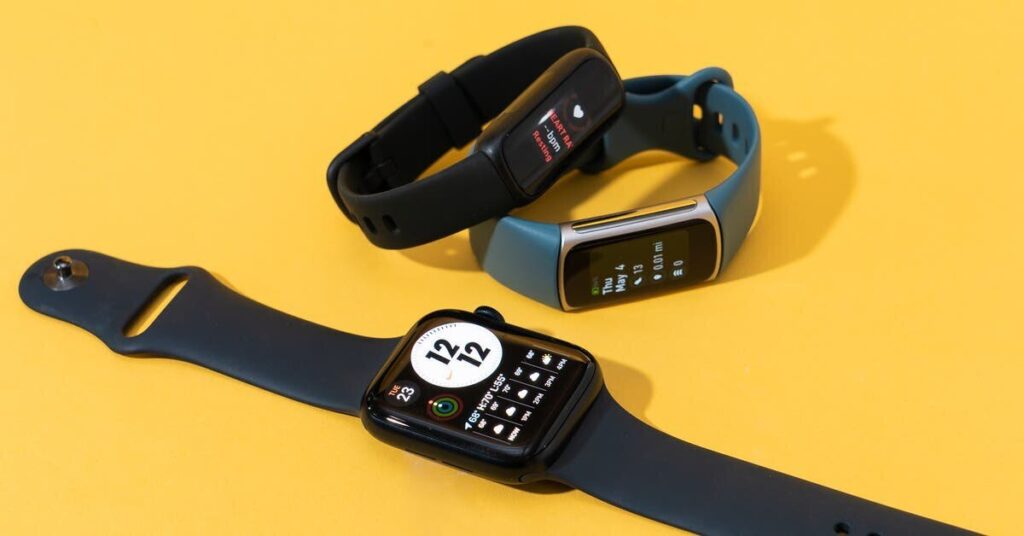Wearable fitness trackers have revolutionized personal health monitoring by leveraging advanced AI technologies[1][4]. These devices employ sophisticated machine learning models like Activity Recognition to automatically detect and classify various physical activities without user input[2]. By analyzing data from embedded sensors such as accelerometers and gyroscopes, trackers can distinguish between walking, running, cycling, and other exercises with increasing accuracy[1][2].
Time-Series Forecasting is another crucial AI application in fitness trackers, enabling predictive analytics for health metrics[3]. This technique allows devices to anticipate future trends in a user’s activity levels, sleep patterns, or heart rate variability, providing valuable insights for proactive health management[3][4].
Many trackers now incorporate deep learning models to enhance their capabilities[1][3]. Convolutional Neural Networks (CNNs) and Recurrent Neural Networks (RNNs) are particularly effective for processing the complex, time-dependent data generated by wearables[3]. These advanced algorithms contribute to improved accuracy in step counting, calorie estimation, and sleep stage classification[1][4].
Despite these technological advancements, challenges remain in achieving consistent accuracy across all metrics and activities[1][4]. Factors such as device placement, individual physiology, and the diversity of human movements can impact performance[1][2]. Ongoing research focuses on refining AI models to address these limitations and expand the range of detectable activities[2][4].
As wearable technology continues to evolve, the integration of more sophisticated AI frameworks promises to deliver increasingly personalized and actionable health insights[4]. This progression may lead to earlier detection of health issues and more effective strategies for maintaining overall wellness[4].
Further Reading
1. Wearable activity trackers–advanced technology or advanced marketing? – PMC
2. Automatic Identification of Physical Activity Type and Duration by Wearable Activity Trackers: A Validation Study – PMC
3. Human Activity Recognition For Analysing Fitness Dataset Using A Fitness Tracker. | IEEE Conference Publication | IEEE Xplore
4. Effectiveness of wearable activity trackers to increase physical activity and improve health: a systematic review of systematic reviews and meta-analy…
5. https://edition.cnn.com/cnn-underscored/reviews/best-fitness-tracker


